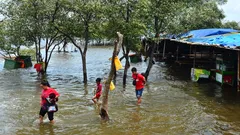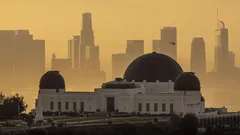242
6
4 minutes
Suggested Articles

First-generation Ivy Leaguers triumph over unique college challenges
Discover key insights, life hacks, and data-driven tips for first-generation college students thriving in prestigious U.S. universities. Find practical strategies, unique challenges, and fresh perspectives essential for student success.

US withdrawal from UNESCO reshapes global education and cultural influence
Civic Education

Guadalupe River flooding sparks powerful community unity and action
News & Updates

Americans face new challenges as Congress slashes NASA and White House funding
News & Updates

Inside the immigration reform battle that’s reshaping America’s future
News & Updates

Civics lessons give students a lifeline in times of community crisis
Civic Education

Gold surges as central banks set records and investors seek safety
News & Updates

Americans find hope as real solutions close healthcare inequality gaps
News & Updates

Teachers in Los Angeles empower students with real-life civics during crisis
Civic Education

Students and educators defend free speech as campus politics reshape college life
Civic Education

Simple habits now make your family safer during earthquakes and tsunamis
Civic Education

First-generation Ivy Leaguers triumph over unique college challenges
Hiring

Americans brace for possible Social Security cuts that reshape retirement
News & Updates

Why this Florida data leak changes how we think about privacy
News & Updates

Build your own AI chatbot and unlock hands-on tech superpowers
Resources & Tools

How to outsmart hidden medical expenses in your golden years
Civic Education

California workers secure jobs this summer with new 2025 laws
Hiring
 Love Women Vibes
Love Women Vibes

Comments